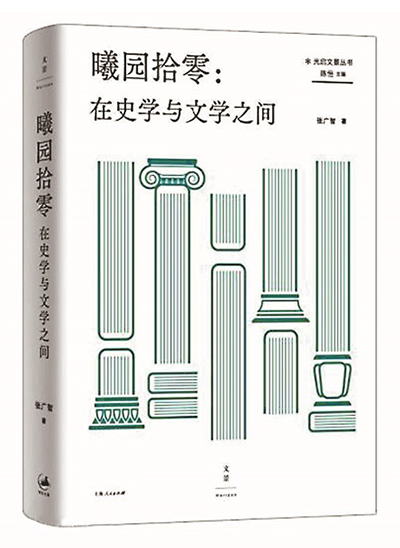Historiographical exchange between China and other nations

Strolling Between Historiography and Literature in Xi Garden
Strolling Between Historiography and Literature in Xi Garden, by Zhang Guangzhi, a professor from the Department of History at Fudan University, discusses the exchange of historiography between China and the West (especially the influence of Western historiography on modern Chinese historiography), the classical propositions of Western historiography, and essays about old friends and old places.
When reviewing the history of China-foreign historiographical exchange, the influence of Soviet historiography on Chinese historiography is an important topic, as discussed in the included article titled “The Introduction of Soviet Historiography into China and Its Modern Reverberations.”
Zhang’s decades-long teaching and research career has been devoted to exploring the history of Western historiography. Thus, he carefully selects five key topics in the field.
The first topic considers ancient Western historiography, mainly theoretical issues of ancient Greek and Roman historiography, such as the God-man relationship in the course of history, the mutual relationship between historical developments, and the economic factors of historical ups and downs.
The second is about the transformation of Western European society from medieval to modern times, about which the author elaborates on the economic basis and ideological basis of social transformations.
Zhang then focuses on the birth of Marxist historiography. Some non-negligible issues in the development of historiography are expounded through analyzing the specific and symbolic works of Marxist historiography and the far-reaching significance of contemporary historians, including Western historians, to the study of Marxist historiography.
Zhang also analyzes the development trend of Western historiography in the 20th century, especially after World War II. Since the 20th century, as thriving new historiography has been obsessed with pursuing “structures” and “deep levels,” and major events on the surface of history are ignored, historiography has become “historiography without people.” Therefore, since the late 1970s, there has been a tendency of narrative revival, and the humanistic tendency of historiography has been strengthened. Since the second half of the 20th century, historiography has undergone unprecedented changes, and a great many new types have appeared, such as “historiophoty.”
After summarizing the research course of the history of Western historiography in China, the author also puts forward expectations for Chinese scholars of the history of Western historiography, such as highlighting the position of the history of historiographical thought within the history of Western historiography, exploring historical views and historiographical views in Western historiography, as well as investigating the history of China-West historiographical exchange and the history of Marxist historiography.
Zou Zhaochen is a professor from the School of History at Capital Normal University.
Edited by YANG LANLAN

 PRINT
PRINT CLOSE
CLOSE